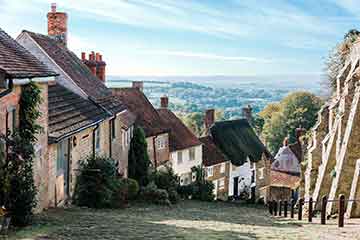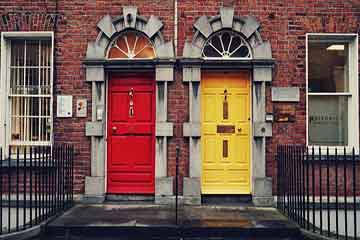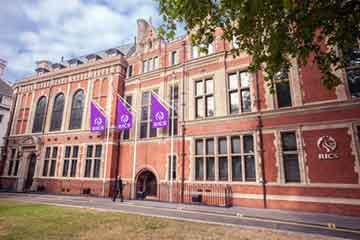Top 7 Questions to Ask A Surveyor
If you are looking to buy or selling a property, it’s important to find a reliable professional who can help you discover any building issues that can affect the overall value of it. There is where a chartered surveyor comes in, but there are a variety of questions to ask a surveyor, before and after a survey, to ensure you understand the results.
Before you are choosing a surveyor, you should always look if he is RICS accredited and qualified. You can check this by looking at their credentials showed on their site or business card or, even better, you can ask them directly to provide this information and you can verify their membership with RICS.
RICS stands for The Royal Institution of Chartered Surveyors and it is the official body of property professionals that issue and monitor standards globally.
To be able to display the “Regulated by RICS”, the surveyor needs to meet the high standards set by this organisation in their guidelines, such as being a qualified RICS professional (MRICS, FRICS, AssocRICS), complying with RICS Rules of Conduct and to work to RICS standards.
Therefore, having an RICS surveyor would mean that your report will be compiled by a qualified, experienced, and trustworthy professional working to the highest standards of the surveying industry. Also, we advise, that you request a sample report or references of their previous work, if this is not already provided with their quotation email and/or call.
Another requirement for RICS membership is that the surveyor should have Professional Indemnity Insurance (PII) which means he is fully insured and is protected from financial loss or potential liability.
This article will cover:
- 1. Are you a Qualified, Accredited and Fully Insured Surveyor?
- 2. What Survey Services do You Offer and Which Survey is Suitable for My Property?
- 3. How much Does a Survey cost?
- 4. What a Surveyor will Look For when Inspecting a Property?
- 5. Are any Areas which will Require Work or a Specialist?
- 6. Is the Property worth the Purchase Price?
- 7. Are any Local Issues to consider and Can they affect the Property Value?
Before booking a property survey, it is important that you run through your options with your chartered surveyor. So, ask a surveyor: “What surveys do you offer and which one would be most suitable for my situation?”
In principal, are three main types of property surveys available:
- Condition Report (Level 1)
- Homebuyer Report (Level 2)
- Building Survey (Level 3)
However, if your desired property is a new development, maybe a snagging report will be sufficient. Or, maybe, just a mortgage valuation is required by your mortgage lender, then a property valuation will be enough (keep in mind that isn’t an actual inspection and in most cases will be shared only with the lender).
As summary, a HomeBuyer Report is generally better for properties that:
- are of a more conventional design and construction
- are built using common materials and erected within the last 50 – 70 years
- are in a reasonable condition, as far as can be seen
A Building Survey is better for properties that:
- are older and build more than 50 – 70 years ago
- have major alterations or extensions
- are more of non-traditional construction
- are larger and offer extensive accommodation
- will be altered in the future
Now that you have established your surveyor is qualified, accredited and offers the right type of survey, it is time to ask a surveyor some more important questions: “How much will the survey cost?“, “How long will take to get the report?”.
The condition report is the most basic RICS survey and is, therefore, the cheapest. As expected, as the level of information required goes up the price will reflect it. It is important to keep in mind that the prices will depend on location, building complexity and value. For example, a RICS HomeBuyer survey for a 3 bedroom property in South of England costs roughly £550 and on average turnaround time is 7 to 10 days.
Depending on your needs and requirements, a surveyor will look at your house survey on different aspects but primarily will focus on the structural integrity of the property and any potential maintenance issues, such as subsidence, unstable walls, a leaking roof, or unsafe chimney chute.
A Condition Report will include a traffic light system for rating the condition of the building and any outbuildings included with the property alongside guidance on any potential risks or areas requiring attention.
An RICS HomeBuyer Report will include the surveyor’s opinion as to whether you should go ahead with the purchase and whether the price you have offered is reasonable in light of the building’s condition plus what, if any, action needs to be undertaken before contracts are exchanged.
The surveyor will assess the general condition of the property and highlight any potential faults which could affect the property value now and/or in the future, such as damp in the walls and wood damage.
A Building Survey will include a detailed assessment of the property’s condition, details of the construction materials and advice on defects, repairs and maintenance. This will include the estimated costs of any repairs, the detailed testing included in the homebuyer report for damp, insulation, drainage and wood damage and any recommendations for follow up inspection.
Need A Free Estimate?
- Fully qualified RICS professional surveyor
- Affordable, fast and thorough surveys
- Clear, precise and easy to understand report
After the survey has been carried over and a report has been issued, sometimes if a good idea to have a chat with your surveyor to make sure you did fully understood what will be required moving forward.
It is always better to clarify if you are unsure about what work is required or the cost of it. Minor issues like leaking fixtures or gutters are relatively easy to fix, but any structural issues can be very costly, especially if are ignored or begin to worsen.
If there are other highlighted issues that need looking into to get to the root cause of the problems and discover how to overcome them, additional surveys like a specialist damp survey, an electrical survey or maybe a CCTV drainage survey could be requested.
You can and should get contractor’s quotes for rectifying the problem. You can use this information to renegotiate a cheaper purchase price or to make a conditional exchange of contracts.
However, if you are not comfortable with any of this, you can always walk away from the purchase and it is not uncommon for reports to prevail serious issues that will end a transaction.
Now that you understood the report and any queries have been answered, it is time to think about the value of the property. Your surveyor can only offer a value for the house if you’re having a homebuyer report that includes a valuation (normally, you will pay extra for this).
Ultimately, deciding whether the purchase price is accurate is your choice. You can base your choice on the report and findings from your surveyor, along with their advice.
Most surveyors are happy to discuss any queries with you on person or by phone and they understand that purchasing a home is an important process for you, but they can not offer advice when comes to buying or not the property. Should be an informed decision and is entirely up to you if you want to proceed or not with the transaction.
Another crucial question to ask your surveyor is if there are any local issues that could affect your property, such as flooding risk or heave. Usually, being a local surveyor, they would be aware of these issues or any other local issues like plans for investment or developments in the vicinity that could affect the property’s value.
These are all issues that a surveyor can initially make you aware of but it is up to your solicitor to conduct these types of conveyancing searches to know how to continue with the information obtained.
One of their main responsibility is to conduct a more detailed investigation into these issues as well as a variety of other searches, such as inquiring about any historic works done to the property or building certificates.
Written by Danil P.
12th Jul 2021 (Last updated on 26th May 2022)
9 minute read





